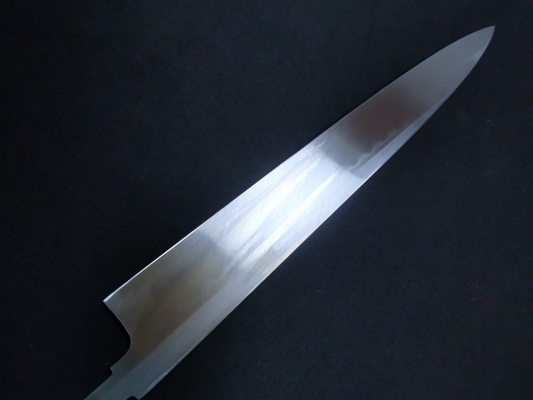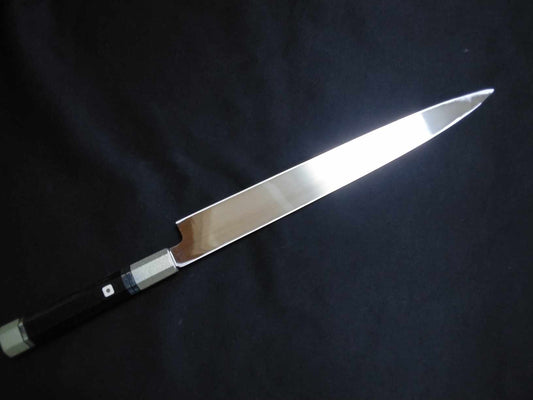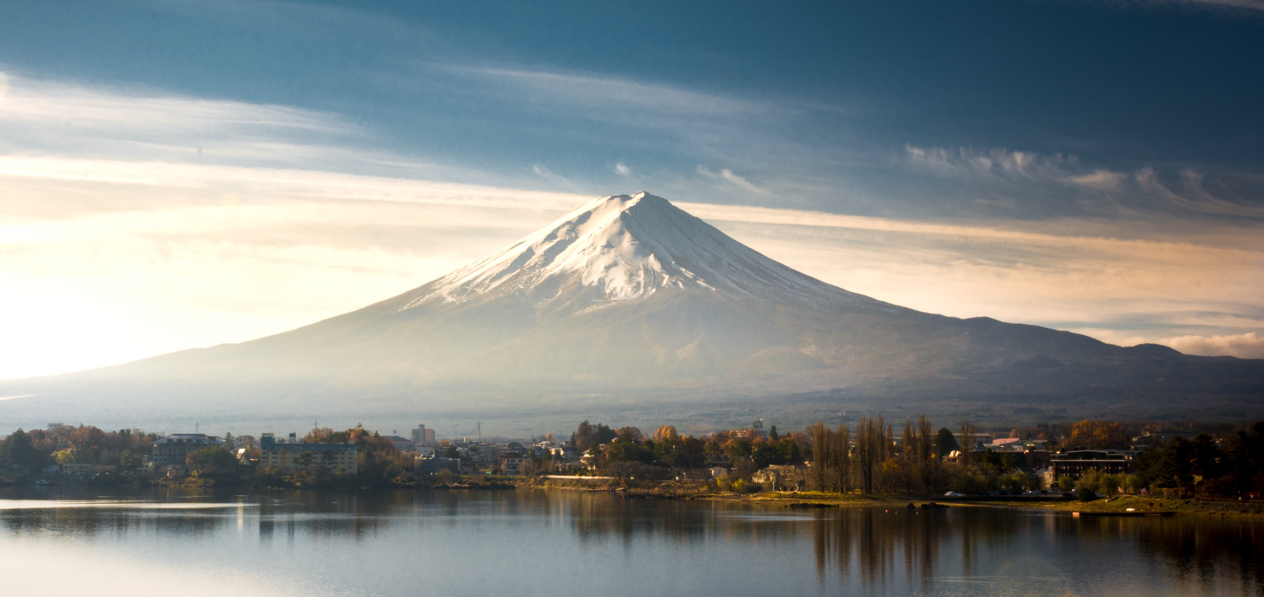
Tatsuo Ikeda
-
In Sakai, where 600 years of knife-making tradition meets unmatched artistry, Tatsuo Ikeda’s legacy endures.
In the heart of Sakai, Japan, where 600 years of knife-making tradition converge, stood Tatsuo Ikeda—a master whose honyaki blades became legends in kitchens around the world. As the third-generation head of Ikeda Cutlery Manufacturing and elder brother to the president of the Sakai Traditional Craftsmen’s Association, he embodied a family legacy of excellence. Every knife he forged by hand was a union of precision, beauty, and the spirit of Japanese craftsmanship—treasures that continue to inspire even after his passing.
-
Sakai Traditional Craftsman Collection: Tatsuo Ikeda
-
White Steel #2 (Honyaki) Yanagiba 240mm-Kido Finishing
Regular price $890.00 CADRegular priceUnit price / per -
White Steel #2 (Honyaki-Aburayaki) Yanagiba 300mm-Mirror Polished(both sides)
Regular price $1,500.00 CADRegular priceUnit price / per$1,500.00 CADSale price $1,500.00 CADSold out
Tatsuo Ikeda: Master Craftsman Whose Knives Embody Skill and Passion
-

A Third-Generation Legacy
As the third-generation head of Ikeda Cutlery Manufacturing, a family business with over 110 years of history in Sakai City, Tatsuo Ikeda carried forward a proud tradition of Japanese blade-making. Recognized as a Traditional Craftsman in 1985, Ikeda was celebrated for his meticulous forging process—shaping every blade himself, from clay tempering to final hardening.
-
Renowned for the Fuji Wave Pattern
Ikeda was highly regarded for his skill in producing the Fuji wave pattern (Fuji Hamon), a decorative and functional technique rooted in sword-making. His works—renowned for exceptional sharpness, durability, and beauty—earned the trust of top chefs and sushi masters in Japan and abroad.
-
An Enduring Legacy
In 1993, he received the Director-General of the Science and Technology Agency Award for developing the Mon-Tanren technique, and in 2009, he was awarded the Order of the Sacred Treasure, Silver Rays by the Emperor of Japan. Since his passing, his knives—crafted entirely by his own hands—have become increasingly rare, treasured as timeless works of art.
KIREAJI's Three Promises to You
-

1. Forged in the Legacy of Sakai
From Sakai City—Japan’s renowned birthplace of professional kitchen knives—each blade is crafted by master artisans with over six centuries of tradition. Perfectly balanced, enduringly sharp, and exquisitely finished, every cut carries the soul of true craftsmanship.
-

2. Thoughtful Care for Everyday Use
Every knife includes a hand-fitted magnolia saya for safe storage. Upon request, we offer a complimentary Honbazuke final hand sharpening—giving you a precise, ready-to-use edge from day one.
-

3. A Partnership for a Lifetime
A KIREAJI knife is more than a tool—it is a lifelong companion. With our bespoke paid aftercare services, we preserve its edge and beauty, ensuring it remains as precise and dependable as the day it first met your hand.
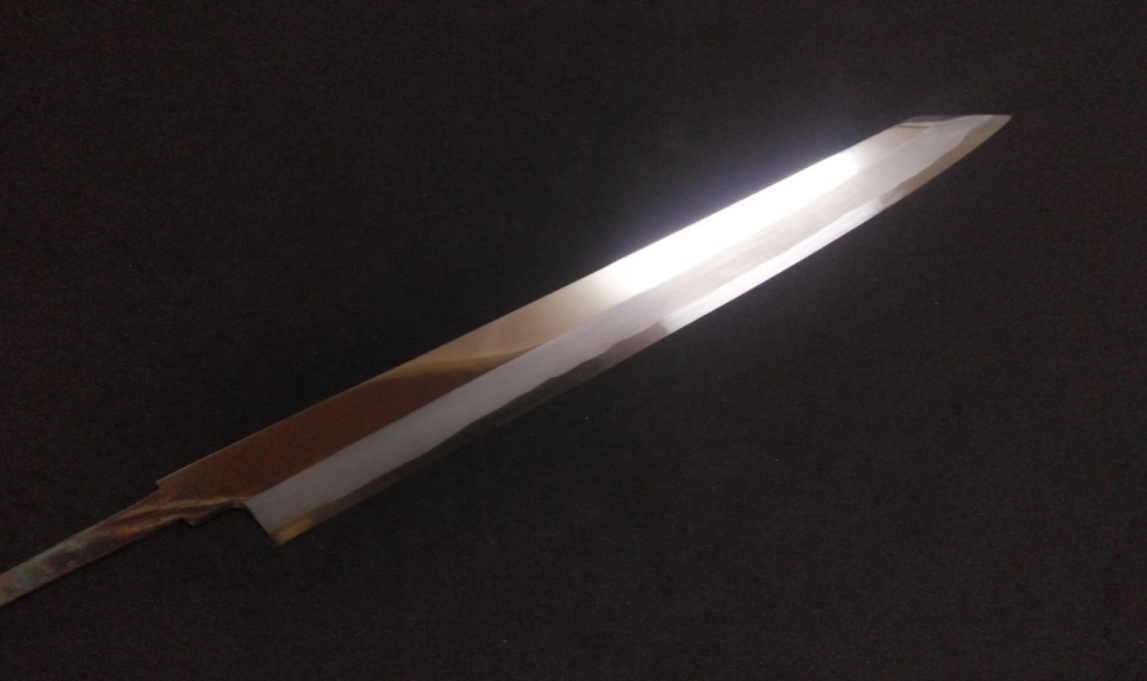
Why Many Product Photos Show Only the Blade
At KIREAJI, every knife is made to order in Sakai, Japan. Photos show the blade before the handle is attached, allowing artisans to perfect the balance and edge for your specific order. Your knife arrives fully finished — tailored just for you.

Global Delivery from Sakai
Across the world, discerning cooks seek authentic Japanese knives from Sakai — Japan’s legendary knife-making city with over 600 years of tradition.
At KIREAJI, we work alongside master artisans in Sakai to fulfill that desire, shipping genuine handcrafted knives directly from the workshop to kitchens worldwide.
Tatsuo Ikeda: Master Craftsman Whose Knives Embody Skill and Passion
-
A Legacy Rooted in Tradition
Tatsuo Ikeda was the third-generation head of Ikeda Cutlery Manufacturing, a family business founded in 1888 with over 110 years of history in Sakai City. Born into a lineage of skilled artisans, he devoted his life to preserving and advancing Sakai’s centuries-old blade-making tradition. He was also the elder brother of Yoshikazu Ikeda (Miwa Ikeda), current president of the Sakai Traditional Craftsmen’s Association—further cementing the Ikeda family’s status as one of the most respected names in Japan’s knife-making world.
-
Career Milestones
- 1954 – Began his journey as a blacksmith
- 1970 – Received official approval from the Agency for Cultural Affairs for sword making
- 1975 – Succeeded as the third-generation head of Ikeda Cutlery Manufacturing
- 1985 – Certified as a Traditional Craftsman by the Minister of International Trade and Industry
- 1993 – Received the Director-General of the Science and Technology Agency Award for developing the “Mon-Tanren” technique
- 2009 – Awarded the Order of the Sacred Treasure, Silver Rays (瑞宝単光章) by the Emperor of Japan
-

Unparalleled Skill and Artistry
Every knife bearing Ikeda’s name was meticulously crafted by his own hands, from the clay tempering to the final hardening process. He was celebrated for his ability to produce extraordinary honyaki blades, including those featuring the prestigious “Fuji wave” pattern—a hallmark of exceptional skill often seen in the finest traditional blades. His works were treasured by top chefs in Japan and abroad for their sharpness, durability, and beauty.
-
A Philosophy of Dedication
Ikeda often spoke about “listening to the steel” during forging, adjusting each step based on the slightest changes in color and temperature—skills refined over decades of experience. For him, mastering the craft required not just technical ability but also the right mindset: curiosity, initiative, and a willingness to evolve while respecting tradition.
-
Passing the Torch
Beyond his personal achievements, Ikeda was dedicated to preserving Sakai’s knife-making culture for future generations. While he acknowledged challenges such as a shrinking domestic market, he believed in adapting tradition through innovation and saw promise in growing international demand.
-

An Enduring Legacy
Tatsuo Ikeda passed away around August 2015, leaving behind a body of work that is now exceptionally rare. Owning one of his knives is not only about acquiring a tool of unparalleled performance—it is about holding a piece of Japanese cultural heritage, imbued with the spirit, skill, and passion of a true master.
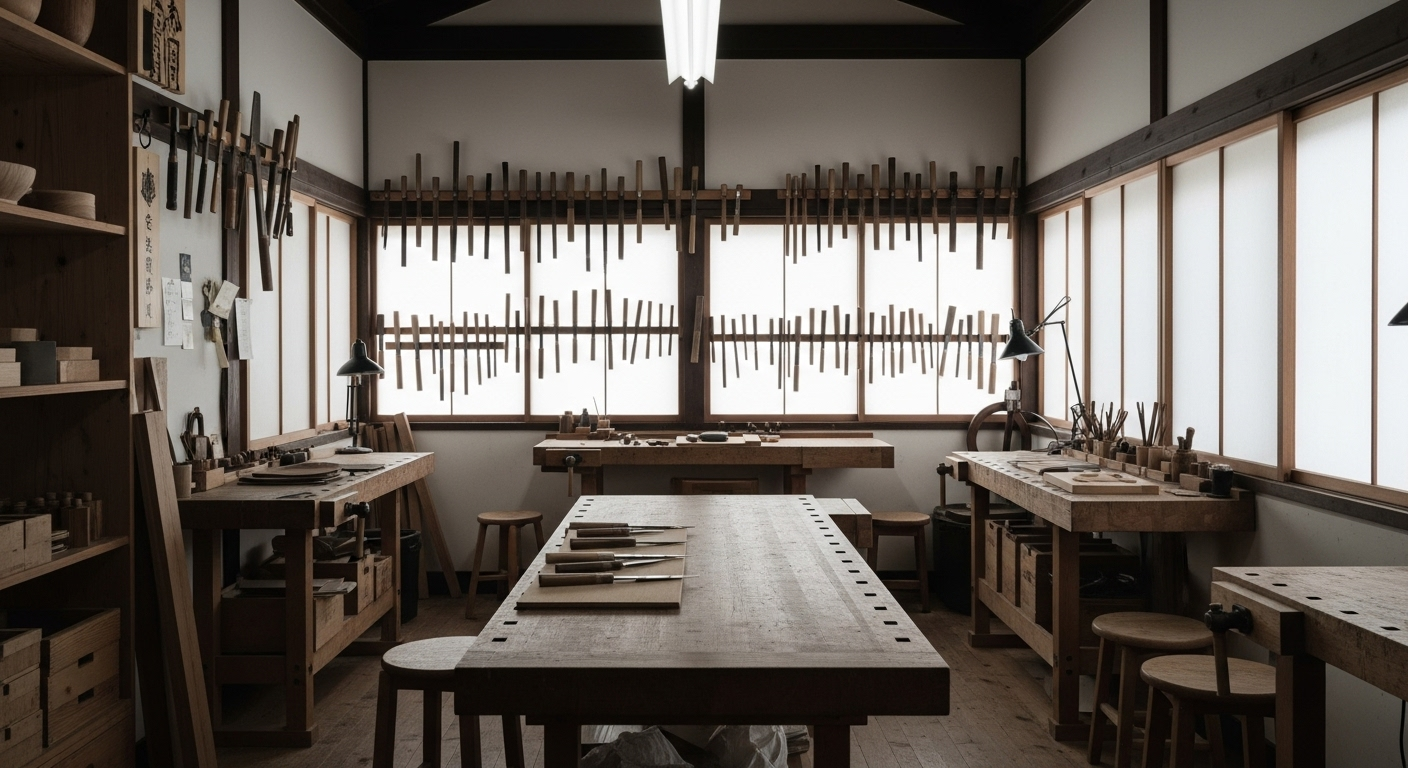

The Master Craftsmen of Sakai Uchihamono
In Sakai, centuries-old techniques are carried forward by government-certified Traditional Craftsmen. Each knife is not just a tool but a living symbol of tradition, precision, and spirit—kept alive through their hands.
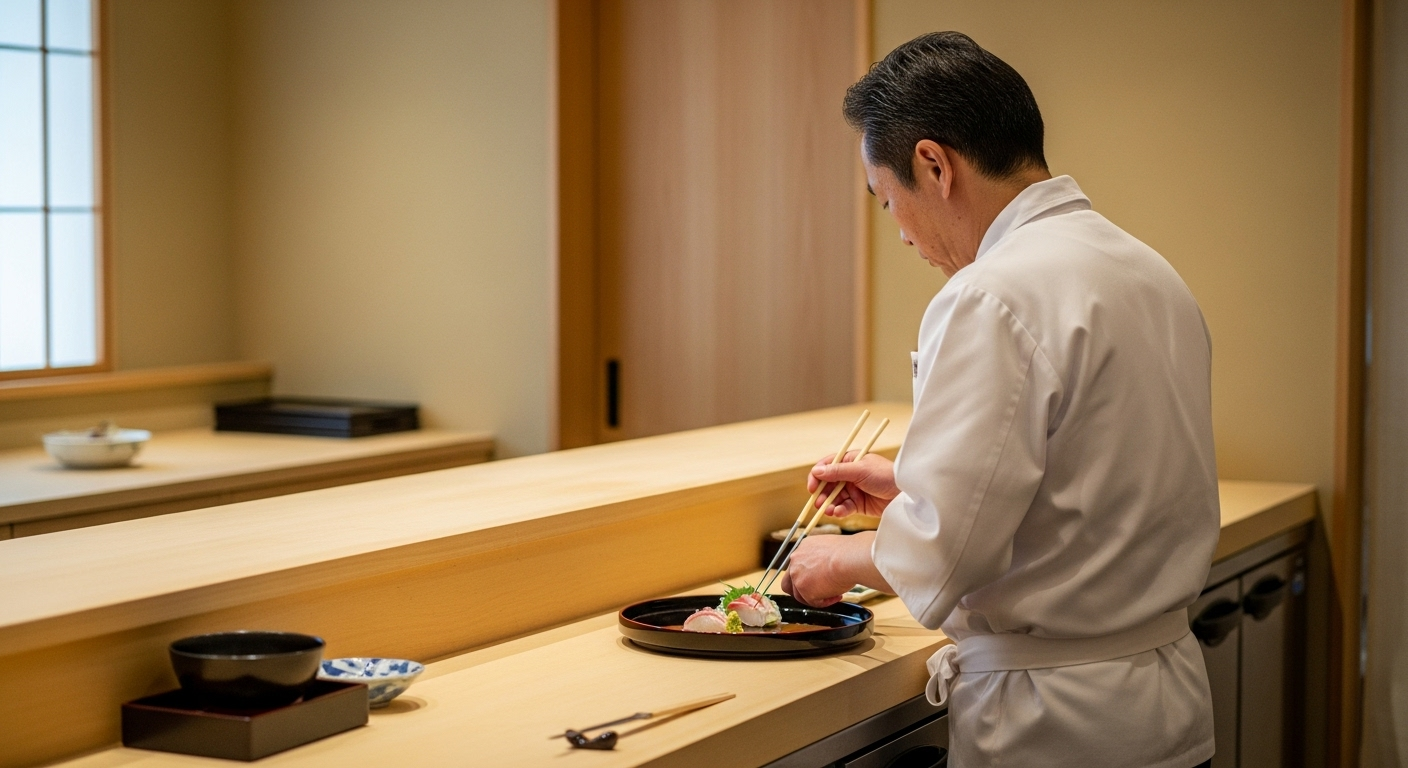
Why Do 98% of Japan’s Chefs Trust Sakai Knives?
For over 600 years, Sakai has perfected a unique craft where each stage—forge, sharpen, finish—is mastered by specialists. This tradition makes Sakai the birthplace of Japan’s most trusted knives.
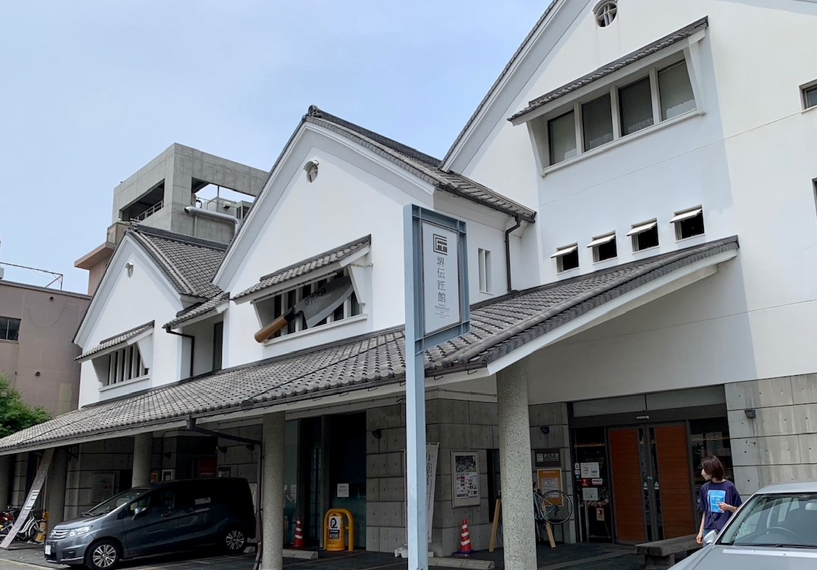
The 98% Statistic: More Than a Number
According to the Sakai Tourism Bureau, “98% of Japanese chefs use Sakai knives.” This figure isn’t just a claim—it reflects the deep trust chefs place in Sakai’s centuries-old craftsmanship.

Sakai’s Dwindling Masters: A Legacy at Risk
Once the heart of Japan’s finest cutlery, Sakai now has only a handful of blacksmiths left. With rising competition and fading interest among the young, new markets and fresh apprentices are vital to survival. Supporting these craftsmen means safeguarding a 600-year cultural legacy.

Yoshikazu Ikeda
Yoshikazu Ikeda, younger brother of Tatsuo Ikeda, is a respected blacksmith and the current president of the Traditional Craftsmen’s Association. His work reflects both the heritage of Sakai knife-making and his dedication to guiding the next generation of artisans.

The Soul of Craftsmanship
-
Don’t Fear Failure—It’s the Foundation of Success
“Failure is the stepping stone to success.” For me, this has never been a mere saying—it is a truth proven at the forge. Every great blade is born from countless failures, each mistake shaping the craftsman as much as the steel.
-
In my own work, whether forging a honyaki or tempering steel, there were many times when the results shattered—cracks in the blade, distortions in the shape, moments where I doubted my own skill. Yet, those failures became my greatest teachers. They revealed to me the subtle colors of heated steel, the precise temperature of the forge, the timing of every strike.
-
Failure stings, but it also guides. It is in failure that we discover where our limits lie, and from there, how to overcome them. Each setback is like a seed—buried in persistence, nourished by effort, and destined to bloom into mastery with time.
-
That is why I tell young craftsmen: do not fear failure. Embrace it, examine it, and let it lead you forward. Without failure, there is no growth. Without growth, there can be no true creation.
-
As I look back on my life at the forge, I know that the knives I leave behind are not just the product of my successes, but also of every failure I endured. They carry within them not only sharpness and strength, but also the spirit of resilience—proof that the path of the craftsman is carved by persistence above all else.
How Japanese Knives Are Made: The Sakai Tradition
VIDEO PROVIDED: JAPAN TRADITIONAL CRAFTS AOYAMA SQUARE (YOUTUBE)
-
Sakai Forged Blades — Six Centuries of Unrivaled Craftsmanship
Loved by chefs around the world and trusted by 98% of Japan’s top culinary professionals, Sakai knives are more than tools—they are the living legacy of over 600 years of master craftsmanship.
-
At KIREAJI, we work directly with the Shiroyama Knife Workshop in Sakai, Japan, ensuring every blade is hand-forged, finished to perfection, and shipped straight from the workshop to kitchens across the globe. No middlemen. No mass production. Only authentic, artisan-made knives, crafted to elevate your cooking for a lifetime.


